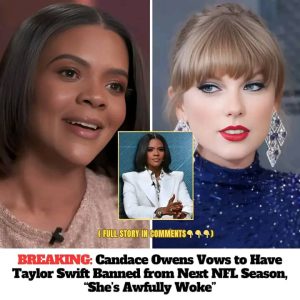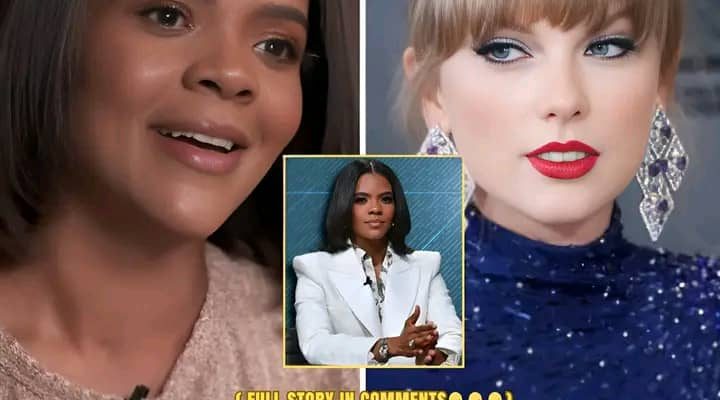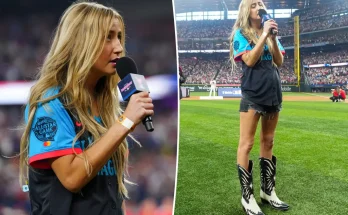Breaking: Candace Owens Vows to Have Taylor Swift Banned from Next NFL Season, “She’s Awfully Woke”

In a recent cultural clash, conservative commentator Candace Owens has taken aim at pop star Taylor Swift, vowing to bar her from attending NFL events in the upcoming season. Known for her outspoken views on social and political issues, Owens has criticized Swift for being overly socially conscious, igniting a fiery debate on the intersection of entertainment, activism, and sports.

Owens, a key figure in conservative circles, has publicly voiced her disapproval of Swift’s stances on various political and social issues. Recently, Owens expressed her intent to rally support for banning Swift from NFL events, citing her perceived influence in shaping public opinion.
The controversy stems from Swift’s outspoken support for progressive causes such as LGBTQ+ rights, gender equality, and racial justice. Through her music and public statements, Swift has emerged as a significant voice in the cultural landscape, using her platform to address social issues and advocate for inclusivity. However, Owens and other critics argue that Swift’s activism has become divisive, polarizing audiences and injecting politics into entertainment spaces like the NFL. Owens accused Swift of using her fame to push a partisan agenda, calling for a reevaluation of her presence in mainstream events.
The conflict between Owens and Swift underscores broader societal tensions, reflecting ongoing debates about the role of celebrities in political discourse. Celebrities like Swift, with large followings, often face scrutiny and criticism for their statements and actions, leading to discussions about the limits of free speech and the responsibilities of influencers.
Swift’s supporters view her activism as a positive force for change, inspiring fans to engage with critical social issues and advocate for progress. They argue that celebrities have the right to express their opinions and use their platforms to amplify marginalized voices and promote social justice.
Conversely, critics like Owens argue that celebrities should refrain from expressing political views, asserting that their primary role is to entertain, not to influence public opinion. They claim that introducing politics into entertainment spaces can alienate audiences and detract from the enjoyment of cultural events.
The debate over Swift’s presence in the NFL highlights the broader cultural divide in America, where differing perspectives on social issues often clash in the public sphere. As the NFL navigates these tensions, it faces the challenge of balancing competing interests while upholding principles of inclusivity and free expression.
In response to Owens’ campaign, Swift’s representatives have defended her right to engage in activism, emphasizing her commitment to promoting social change and advocating for marginalized communities. They argue that attempts to silence Swift undermine fundamental principles of democracy and free speech.
As the controversy continues, it raises significant questions about the intersection of entertainment, politics, and activism in modern society. Can celebrities effectively use their platforms to drive meaningful change, or do their efforts risk further polarization and division? The outcome of Owens’ campaign against Swift remains uncertain, but the debate underscores the complex dynamics at play in the cultural landscape. As audiences grapple with conflicting viewpoints and competing values, the role of celebrities in shaping public discourse will continue to be a subject of intense scrutiny and debate.



